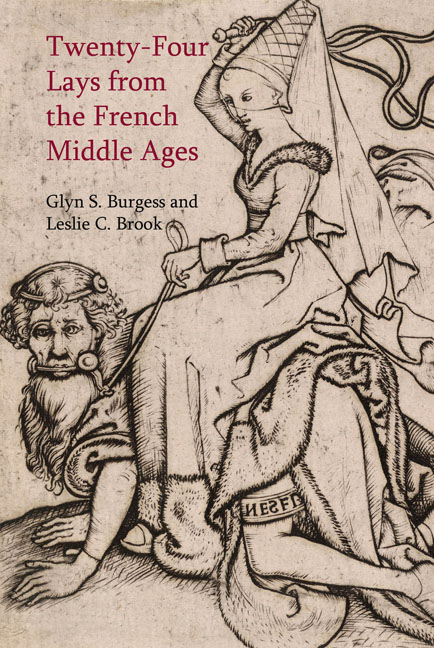17 - Nabaret
from Fun and Games
Summary
Introduction
Nabaret is preserved in just one manuscript: P (Cologny-Genève, Bibliotheca Bodmeriana, Codex Bodmer 82). At forty-eight lines, it is the shortest lay in the present collection.
The lay concerns a power struggle between husband and wife. A knight has a wife of high lineage who, in his view, spends too much time and money on her appearance. He accuses her of dressing to please another man, but his exhortations fall on deaf ears. He turns to her family for help, but instead of providing a solution to his problems this only makes matters worse. For she tells her parents that if he does not like her dressing fashionably, there is only one form of revenge that a jealous man can adopt: ‘He should let his beard grow long and have his whiskers braided’ (vv. 38–39). The parents, and all those who later hear it, find the riposte highly amusing.
The problem for the modern reader is that it is not easy to determine precisely why the wife's remark stimulates such hilarity. Is she saying that her husband should change his appearance in such a way that he will become her rival in looks, and she will be jealous of him rather than he of her? Or does she mean that by taking her advice he would make himself look as odd as she would if she did what he wanted her to do. Or perhaps what the wife wishes to convey is that, although he is no doubt still a relatively young man, his view of her behaviour is redolent of an old man, or a patriarchal figure, who, at a time when young men were clean shaven, would have been more likely to sport a moustache or a braided beard. The implication would then seemingly be that if he wants to behave like an old man she for her part has no intention of looking any older that she actually is. Whatever she means, the notion of revenge is clearly important to the lady, as she mentions it twice (vv. 36, 40). But why would a brave and courtly knight want to take revenge on his wife by looking like a much older, authoritarian figure?
- Type
- Chapter
- Information
- Twenty-Four Lays from the French Middle Ages , pp. 173 - 176Publisher: Liverpool University PressPrint publication year: 2016

